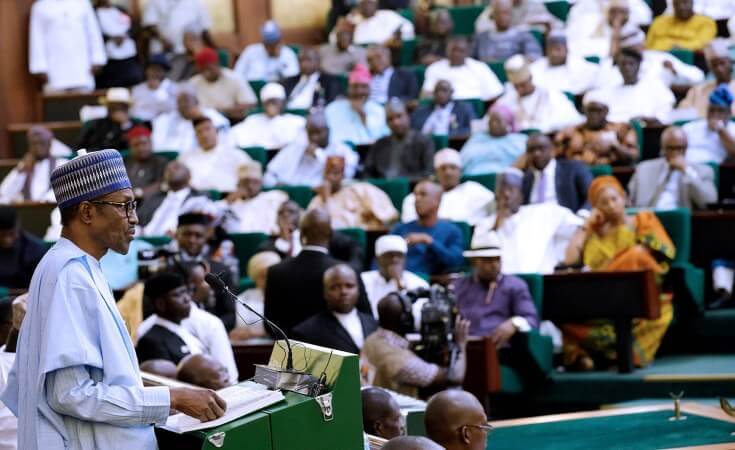Covid-19: Despite World Bank, IMF’s Call For More Funding, Nigeria’s N440bn Health Budget Falls Below 15% AU Benchmark
Advertisement
Nigeria’s N440bn health budget falls below 15 per cent African Union benchmark amid calls by the International Monetary Fund and World Bank for nations to scale up funding for health sector to tackle the Coronavirus pandemic.
The African Union countries in April 2001 pledged to set a target of allocating at least 15 per cent of their annual budget to improve the health sector.
President Muhammadu Buhari recently presented Nigeria’s 2021 budget estimate to the National Assembly worth N13.08trn, where the sum of N440bn representing only 3.36 per cent of the budget size was allocated to health.
To meet the AU’s benchmark for health, Nigeria need to budget N1.96trn which is the 15 per cent of the proposed budget based on THE WHISTLER analysis.
Advertisement
Nigeria’s weak and squalid health sector has been further exposed by the global Covid-19 health crisis, where it has sought for emergency health aides from multilateral agencies.
Nigeria’s health sector has an annual deficit amounting to $10bn (N3.86trn) in health infrastructure gap.
With the largest population in Africa, Nigeria’s annual budget for health sector at all levels of government can not cover for its health sector needs.
Following the outbreak of the pandemic, Nigeria primary health care system was weak with health facilities unable to cope with the rising number of COVID-19 cases.
This had overwhelmed the country’s health system forcing the government to seek external intervention.
Advertisement
With the dwindling oil price, which contributes 70 per cent of government’s revenue, the government needed to scale-up funding for the sector to also check medical tourism.
Consequently, state owned Nigerian Petroleum Corporation along side partners ventured into building hospitals with the raising of N21bn across 12 states to meet the health needs of Nigeria’s over 200 million people.
Nigeria’s spending shortfalls comes despite warnings from multilateral agencies for increased health spending.
The IMF had on Monday urged countries to scale up their intervention in the health sector to be able to effectively contain the Coronavirus pandemic.
“The immediate dual priority for policy is to ensure adequate resources for health care systems and to limit the economic damage,” IMF said in the October World Economic Outlook.
Based on lessons from the pandemic, the IMF had prioritised investment in health, education, and high-return
infrastructure projects.
Advertisement
Africa’s most populous nation has since 2001 not met the AU bench mark, but the N440bn for 2021 is so far the highest in the past years.
The World Bank had also warned against low spending on health consequently extended debt suspension for some countries for the next 12 months.



